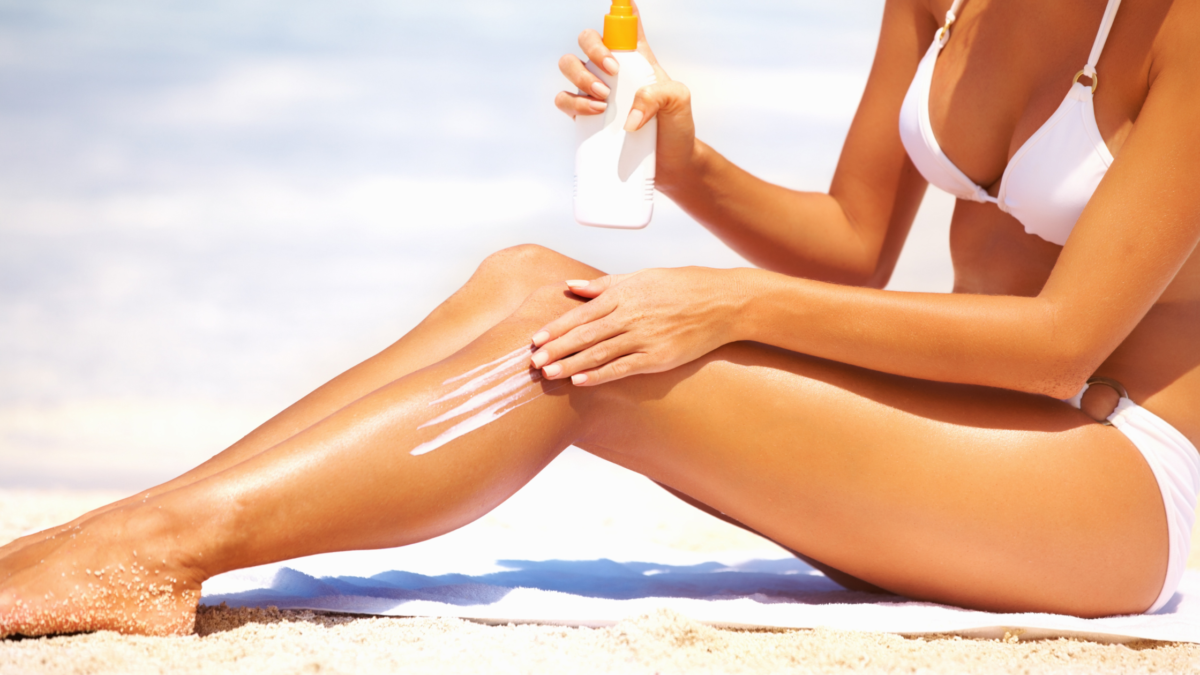


Medically Reviewed By Margaret Etudo. Written By The Vitamins For Woman Team.
Sunscreen is essential, but it is not a complete solution. Many people miss spots when applying or forget to reapply, leaving their skin vulnerable to UV damage.


medically reviewed by margaret etudo, BPharm. written by the vitamins for woman team.
Protecting your skin from the sun’s harmful UV rays is essential for maintaining skin health and preventing damage such as sunburn, premature ageing, and skin cancer.
Whilst a clean, natural sunscreen should be part of your sun protection routine, incorporating certain nutrients into your diet can provide additional support in defending against UV damage and promoting skin health.
Opting for UV protection supplements packed with the proper nutrients, including antioxidants, vitamins, and minerals, can help neutralize free radicals, reduce inflammation, and thus help protect the skin from UV damage due to sun exposure.
In this article, we’ll explore how vitamins for UV protection work, the best ingredients to look for, and why to incorporate them into your diet.
The most straightforward form of sun protection for the skin is clothing and a hat. Sunscreens, whilst increasingly controversial, also offer UV-A and UV-B protection, helping slow down ageing and sun damage-related skin issues. Opting for mineral sunscreen with natural ingredients is a better option than conventional sunscreens made with synthetic ingredients. Avoiding the sunshine when it is most potent, usually between 12:00 and 16:00, can also help limit any potential skin damage.
In addition to these tricks, supporting the skin from the inside out can add extra protection. Adding UV protection supplements to your skincare routine offers an additional layer of defence, helping your skin resist oxidative stress and UV-induced damage.
UV protection supplements contain potent antioxidants and vitamins that help neutralize free radicals generated by UV rays. These supplements do not replace sunscreen but serve as an additional defence mechanism, working at a cellular level to repair and strengthen the skin.
Vitamin C is a potent antioxidant that helps protect skin cells from oxidative damage caused by UV exposure. It boosts collagen production, brightens skin, and supports the skin’s natural repair process.
Vitamin E is a powerful antioxidant that works synergistically with Vitamin C, enhancing its protective effects. It helps neutralize free radicals and supports skin barrier function, reducing the impact of UV radiation and protecting cell membranes.
Astaxanthin is a red pigment in seafood such as salmon, shrimp, and krill. It is one of the most potent antioxidants and protects against UV-induced skin damage by neutralizing free radicals and reducing inflammation. Astaxanthin also helps improve skin elasticity, reduce fine lines and wrinkles, and enhance moisture retention.
Zinc is an essential mineral that is key in skin repair, collagen synthesis, and immune function. It also has mild sun-protective properties, helping reduce inflammation and support wound healing.
Beta-carotene is a precursor to Vitamin A found in yellow fruits, oranges, and vegetables like carrots, sweet potatoes, and pumpkins. It is a natural sunscreen that helps protect the skin from UV-induced damage, promoting cell turnover and repair. Beta-carotene also neutralizes free radicals, which may reduce sun sensitivity and contribute to a healthier complexion.
When taken consistently, UV protection supplements offer several benefits, which include;
Even with supplements, applying a broad-spectrum sunscreen with SPF 30 or higher is essential. Reapply every two hours, especially if you’re outdoors.
Wearing wide-brim hats, UV-blocking sunglasses, and long-sleeved clothing provides extra protection against harmful rays.
Consuming foods high in antioxidants, such as berries, leafy greens, and nuts, can enhance your skin’s ability to defend itself against oxidative stress.
Avoid direct sunlight between 10 AM and 4 PM, when UV rays are at their strongest. Seek shade whenever possible to minimize skin damage.
No, UV protection supplements are designed to complement, not replace, sunscreen. They work internally to strengthen skin defense but do not provide an external barrier like sunscreen.
Most supplements take four to eight weeks to show visible improvements in skin health and sun resilience.
No, UV protection requires a multifaceted approach, including sunscreen, protective clothing, and a diet rich in antioxidants.
Most UV protection supplements are safe when taken as directed. However, high doses of certain antioxidants may cause mild digestive discomfort or interact with medications. Always consult a healthcare provider before starting a new supplement regimen.
Enjoying nature, gardening, walking, and breathing in the fresh air are great reasons to be outside. Suppose you want to keep your skin in the best shape possible. In that case, you’ll want to apply 30+ SPF sunscreen daily to all exposed skin before stepping outside your door — even on cloudy days. However, incorporating UV protection supplements into your daily routine can significantly enhance your skin’s resilience and long-term health. Choose supplements rich in Vitamin C, Vitamin E, Astaxanthin, Zinc, and Beta beta-carotene extract to provide your skin with the internal support it needs to stay healthy and radiant.
[…] SPF 30+: UV rays further damage the barrier. Daily SPF is non-negotiable, even on cloudy […]
[…] a comprehensive eye protection strategy should include both behavioral changes (regular screen breaks, proper lighting, screen filters) and […]